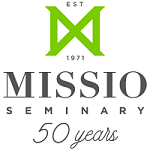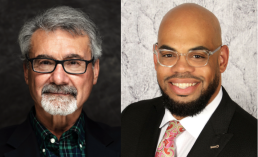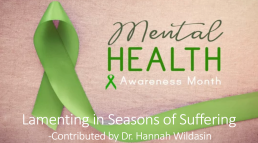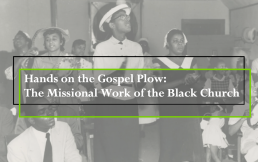Doctor of Ministry Program
Are you engaged in ministry and looking for ways to equip yourself with the skills needed to continue reaching your community? Missio offers advanced studies that train men and women to become practical, advanced missional leaders in their churches and ministries. Regardless of whether you are in ministry professionally or as a lay leader, our courses will help you obtain a robust knowledge of theology and culture along with the tools to gain the wisdom to become an effective leader.
Whether you are looking to develop a theology of cities based on Scripture, reinvigorate an established church or organization, or learn to interpret Scripture in a way that leads to effective communication, our Doctor of Ministry program offers exciting and challenging courses.
At Missio, all of our courses are geared to incarnate and communicate the story of Jesus with humility and authenticity. We strive to foster an environment where our students will develop the commitment, skills, capacities, and transferable habits to be effective missional leaders.
Overview of the Doctor of Ministry
The Doctor of Ministry program is a professional program intended for men and women actively engaged in full-time Christian ministry. The equivalent of the Doctor of Ministry in other professions is, for example, Doctor of Education (EdD), Doctor of Jurisprudence (JD), and Doctor of Psychology (PsyD).
The thirty credit program takes a minimum of three years to complete. The program provides an advanced understanding and integration of ministry in relation to missional theology, ecclesiology, and careful study of issues related to culture and context.
Students develop advanced skills and competencies for missional leadership and complete a doctoral-level project that contributes new knowledge and understanding of the practice of ministry.
Earning an advanced professional degree such as the DMin means that the students have prepared themselves to accept new challenges and opportunities for the Kingdom and as the Spirit leads.
Missio currently offers three tracks for the DMin program: Contextual Ministry Leadership Track, Contextual Preaching Track, and Pastoral Care and Counseling Track. Each of these tracks include three interrelated components: eight courses, the writing of the dissertation, and the oral review
Why Missio’s Doctor of Ministry Degree?
The Missio DMin program offers the following advantages:
- Week-long residential courses are done in a learning community to maximize holistic personal development
- Course calendar fits busy ministry schedules
- Program can be completed in as few as 36 months.
- Applied research project is done in your ministry context
- An experienced project adviser is assigned to each student
- Highly flexible program that can be tailored to an individual student’s ministry, interests, and context including missional leadership, exposition, church planting, non-profit leadership, pastoral counseling, etc.
- Learnings in the classroom and through the personalized project can be directly and immediately applied in the student’s ministry context
- Students are other ministry professionals
- Faculty are experienced ministry practitioners
- Writing for the dissertation is primarily completed through course assignments during the required courses
- All classes and programs are available on-line. The majority of our on-line classes are in a synchronous format. This means that you can engage with your professors and classmates from the comfort of your own home! For more information please contact our admissions department here.
Curriculum
The core courses provide students with the skills and competencies needed to turn around, reinvigorate, plant, and propel established churches and organizations into more effective ministries that are strategically positioned for missional engagement in the 21st century.
Contextual Ministry Leadership Track
Year 1 – Fall
DM 941 – Advanced Ministry Research and Writing
DM 951 – History of Project Problem
Year 1 – Spring
DM 942 – Community/Network Analysis for a Changing World
DM 943 – Applied Missional Theology
Year 2 – Fall
DM 944 – Missional Leadership Development
DM 952 – Hands-on Research Development
Year 2 – Spring
DM 945 – Missional Cultural Studies
DM 946 – Contextualized Ministry
Year 3 – Fall
DM 981 – Dissertation Writing Module
Year 3 – Spring
DM 983 – Dissertation Completion Module
Year 4+ (If Needed)
DM 982 – Dissertation Continuation Module
Contextual Preaching Track
Year 1 – Fall
DM 941 – Advanced Ministry Research and Writing
DM 961 – Culture-Specific Preaching
Year 1 – Spring
DM 942 – Community/Network Analysis for a Changing World
DM 943 – Applied Missional Theology
Year 2 – Fall
DM 962 – Pastoral Preaching for Congregational Care
DM 963 – Prophetic Preaching for Social Change
Year 2 – Spring
DM 945 – Missional Cultural Studies
DM 946 – Contextualized Ministry
Year 3 – Fall
DM 981 – Dissertation Writing Module
Year 3 – Spring
DM 983 – Dissertation Completion Module
Year 4+ (If Needed)
DM 982 – Dissertation Continuation Module
Pastoral Care & Counseling Track
Year 1 – Fall
DM 941 – Advanced Ministry Research and Writing
DM 971 – Helping People Change
Year 1 – Spring
DM 972 – Trauma, Grief, and Loss
DM 943 – Applied Missional Theology
Year 2 – Fall
DM 944 – Missional Leadership Development
DM 973 – Present Issues in Pastoral Care
Year 2 – Spring
DM 945 – Missional Cultural Studies
DM 946 – Contextualized Ministry
Year 3 – Fall
DM 981 – Dissertation Writing Module
Year 3 – Spring
DM 983 – Dissertation Completion Module
Year 4+ (If Needed)
DM 982 – Dissertation Continuation Module
Note: DM 982 – The Dissertation Continuation Module is a one-hour course which must be taken every semester past DM 981 until the dissertation is completed.
Notes regarding the program:
Course Workload and Length of the DMin Program
Residency weeks are scheduled so that students can prepare pre-course work before coming to campus. Typically 1500 pages of assigned reading are required and twenty-five pages of written assignments precede the residency week. The post-residency is typically fifty pages of written assignments and is due within six weeks after the residency week.
Some students may be required to take propaedeutic courses. Contact the program director for details.
Total Required Credits – 30
The applied research project integrates the knowledge and skills learned in the DMin coursework with the analysis of a specific program, problem, or case in the student’s ministry. It provides the student with the opportunity to make a professional contribution to missional praxis in the student’s chosen context.
The term “applied research project” refers to the entire DMin project as described in the modules below. The term “dissertation” refers to the actual written document.
All DMin students will be required to complete two project modules, one of which will include an oral defense of the student’s dissertation.
Dissertation Modules – 6 Credits
Dissertation Writing Module
Dissertation Continuation Module (if needed)
Dissertation Completion Module
Notes regarding the program:
Course Workload and Length of the DMin Program
Residency weeks are scheduled so that students can prepare pre-course work before coming to campus. Typically 1500 pages of assigned reading are required and twenty-five pages of written assignments precede the residency week. The post-residency is typically fifty pages of written assignments and is due within six weeks after the residency week.
Some students may be required to take propaedeutic courses. Contact the program director for details.
Total Required Credits – 30
If the student takes longer than 3 years to complete the program because their dissertation writing requires more time, the student must register for DM 958 (one-hour continuation module) each semester until completion; i.e., the total number of hours in the program may exceed 30.
Am I Eligible to Apply for the DMin Program?
Admission to the DMin degree requires a completed MDiv degree or its equivalent from an accredited institution and three years of ministry experience subsequent to the first theological degree. Students who are interested in the DMin program and who have a graduate degree but do not hold the MDiv degree may qualify for the DMin program by completing a pre-doctoral course of study. MDiv equivalency is defined as broad-based work in theology, biblical studies, and the arts of ministry and that includes a master’s degree and significant ministerial leadership. Applicants must complete all elements of the application forms and process.
Ready to start your journey?
Whether you are looking for more information regarding a program, scheduling a visit, starting the application process, or just wanting to talk to someone about your dreams, our admissions department is always available to assist you and answer any question that you might have.
What are professors saying?
Continue to Press: A letter from the Editor
A recording of Missio's 52nd Commencement is available here.
Lamenting in Seasons of Suffering
One helpful practice when walking through a season of suffering is writing a lament or a series of laments
Sunday’s Sermon
We share in the grief of friends and family who lost loved ones to the unspeakable violence in Buffalo
Hands on the Gospel Plow Webinar
Take an insightful journey with us as we delve into the missional history of the Black church moderated by Missio’s Assistant Professor of Practical Theology and Urban Initiatives, Dr. Clarence E. Wright.
Black History Month Video Message
As we celebrate Black History Month at Missio Seminary, President Frank James shares the impact Black missional leaders have had on him and his missional journey.
A Heartfelt Discussion with Sister Thelma White and Pastor Kevin Haynesworth
A Heartfelt Discussion with Sister Thelma White and Pastor Kevin Haynesworth
When Moderation and Justice Collide
Somehow justice, mercy, and humility belong together in a Christian social ethic. I think that is at least part of what MLK was telling us.
A Catalyst for Senior Pastoral Leadership
An excerpt on Senior Leadership from Pastor Keon Gerow and Dr. Sean Wise
Biblical Seminary Memories with Dr. Newman
As Missio continues celebrating 50 years of faithful ministry, Dr. Bob Newman shares stories of the BTS/Missio younger years.
